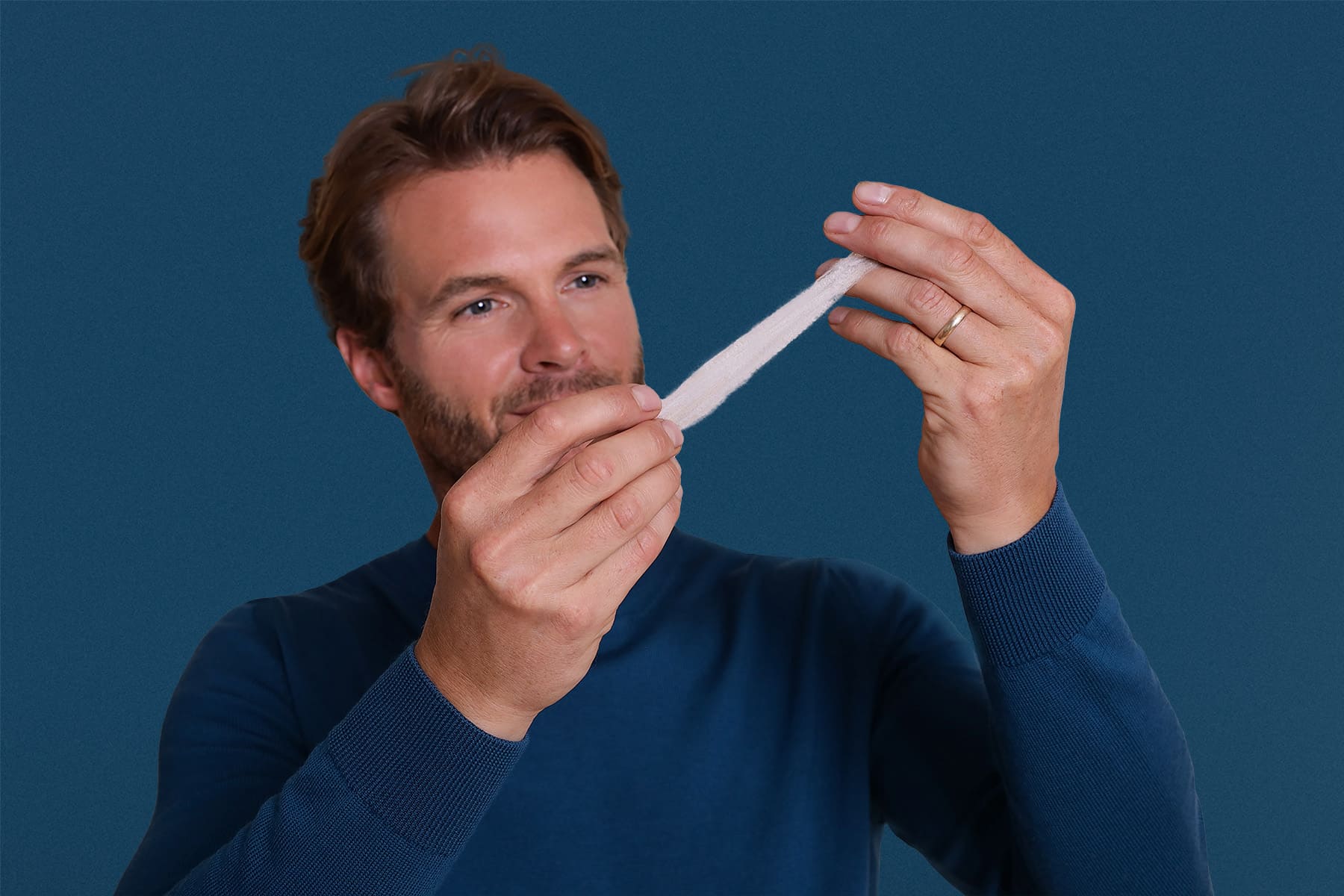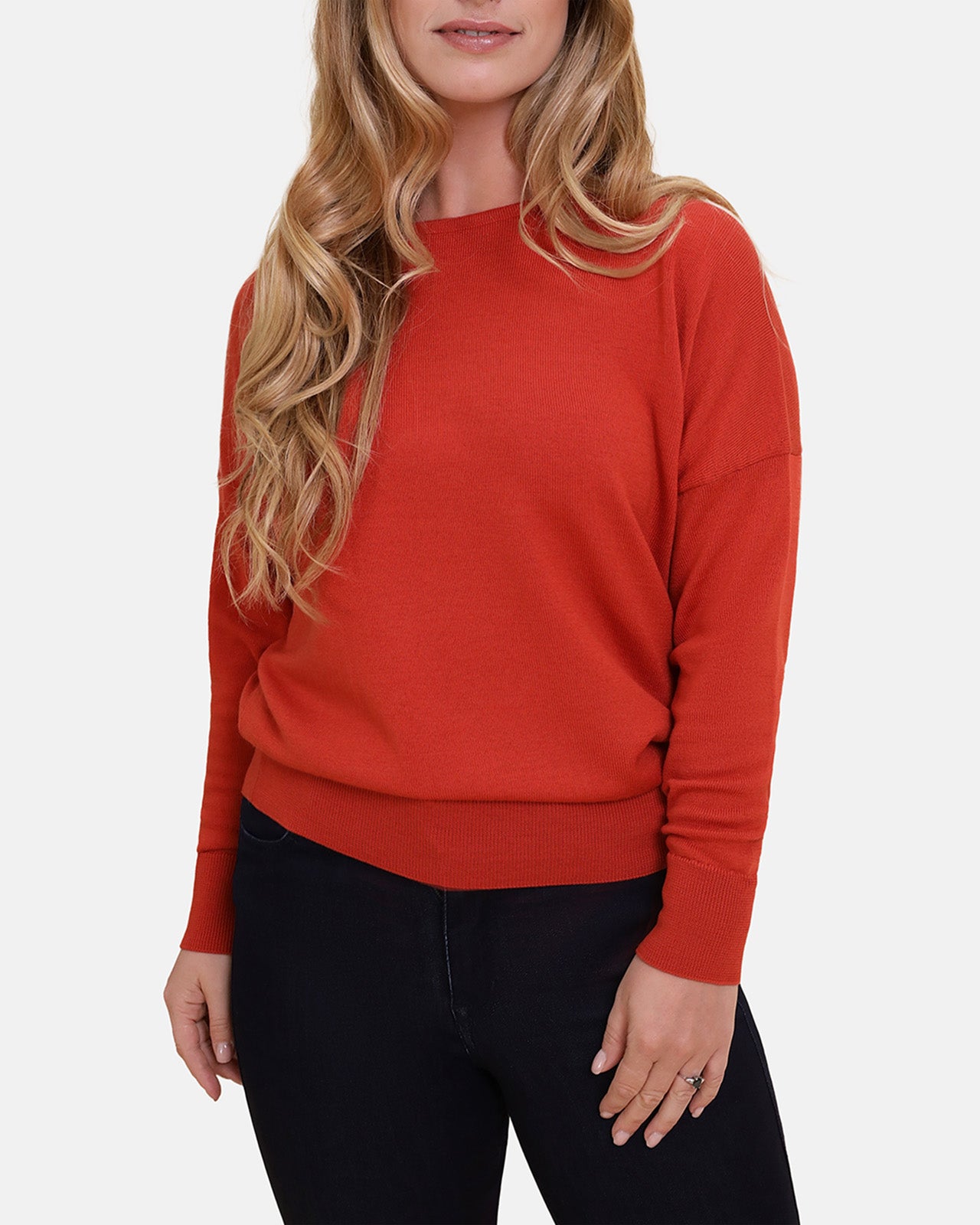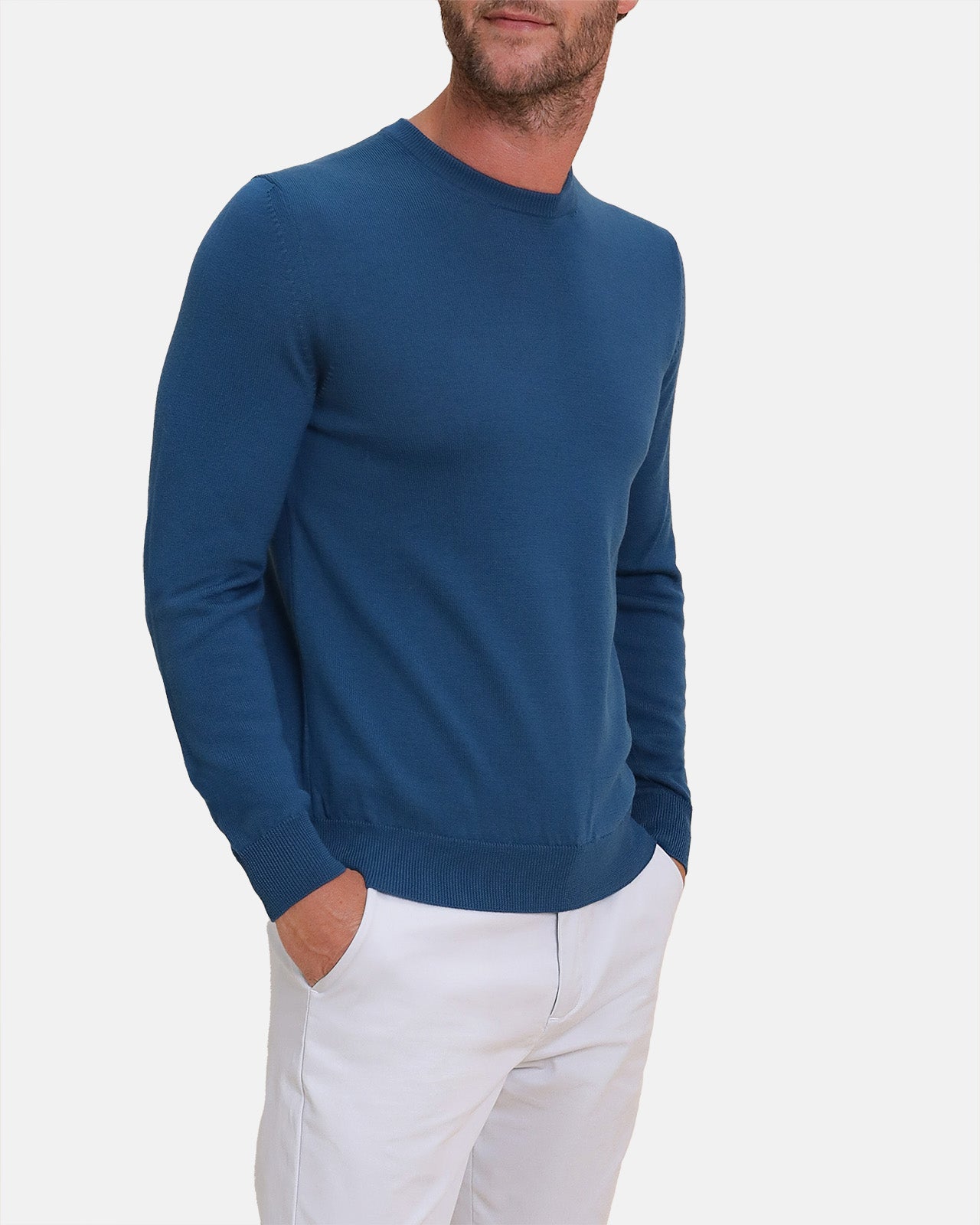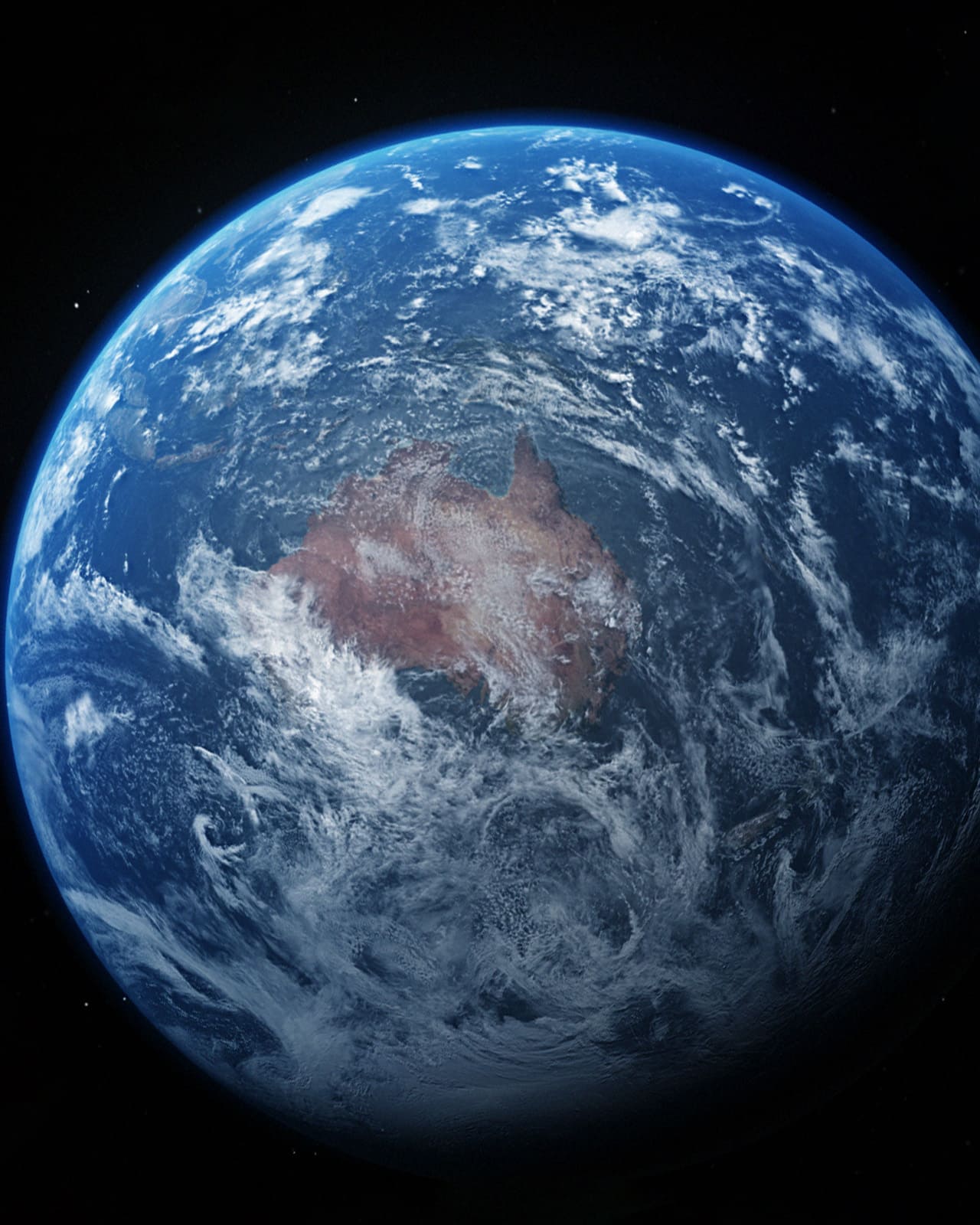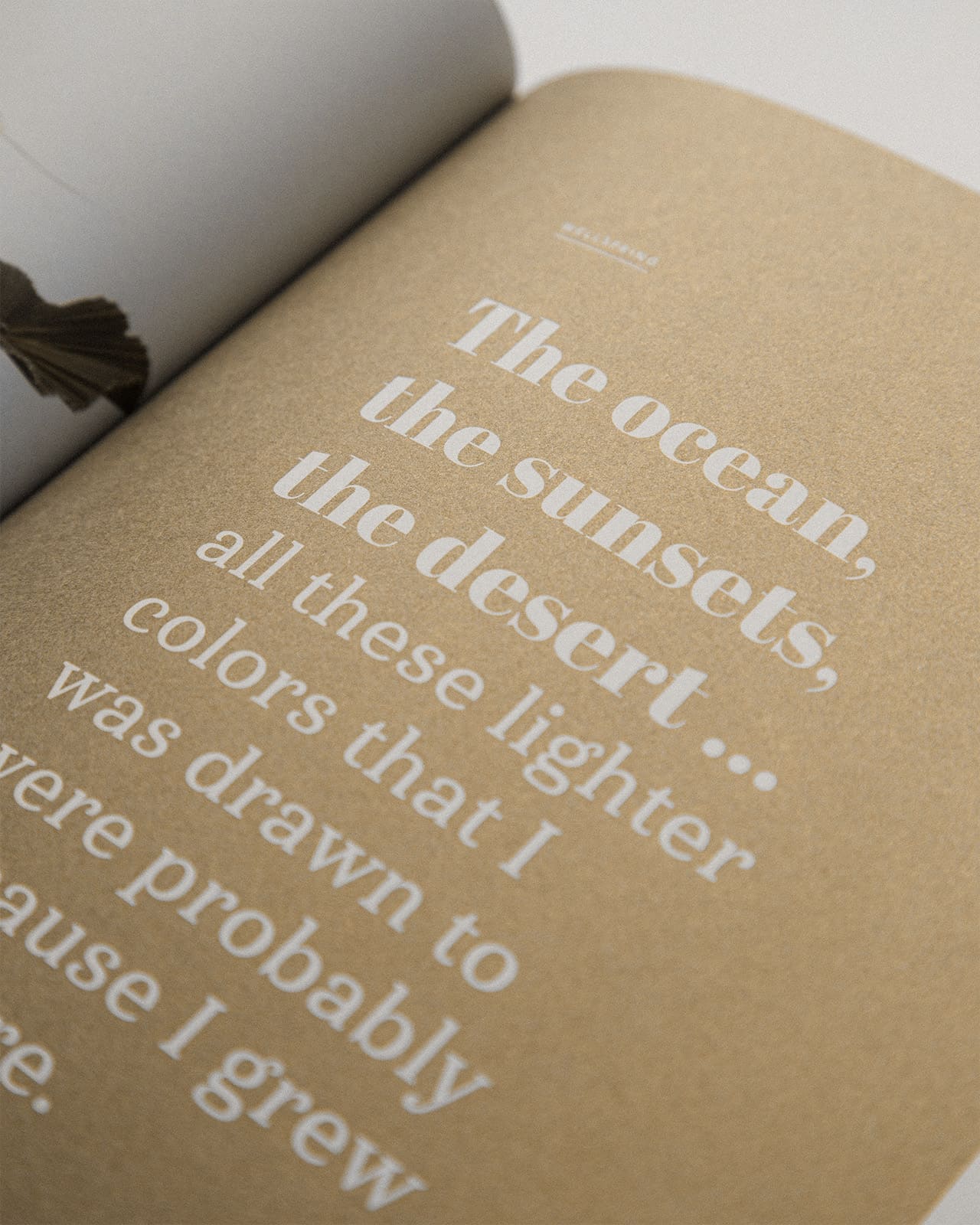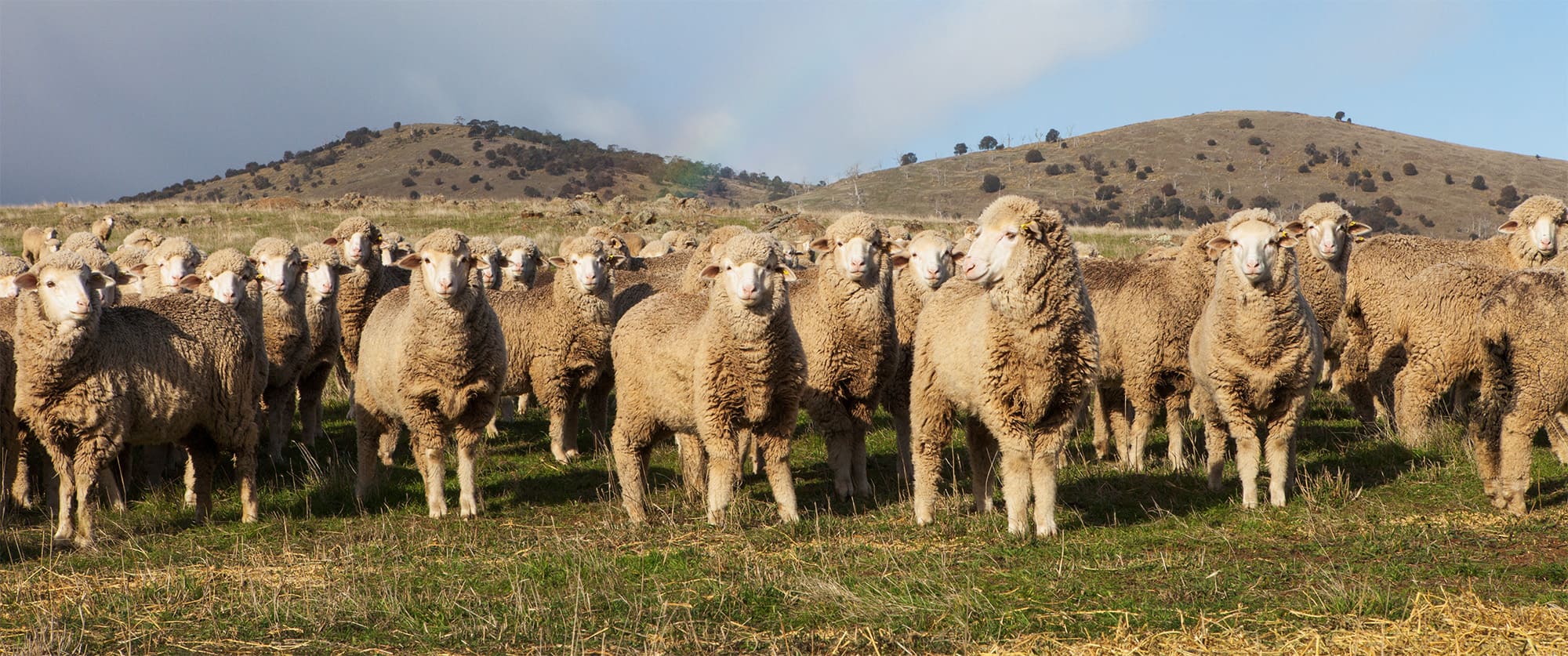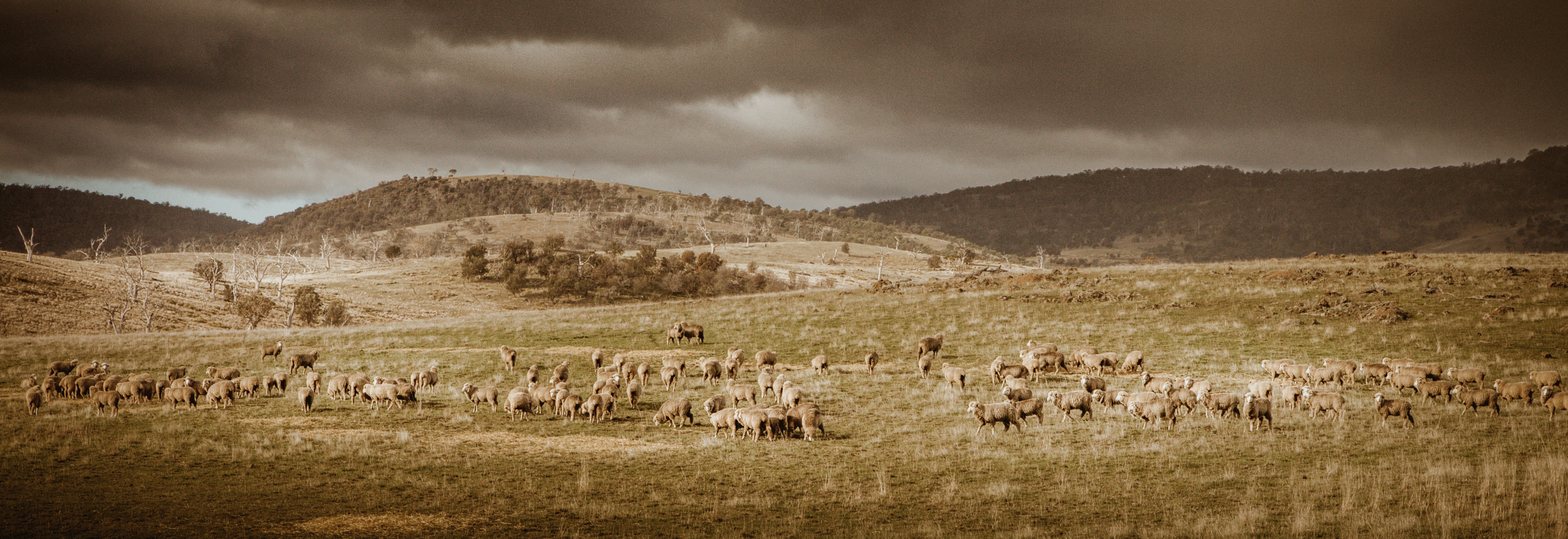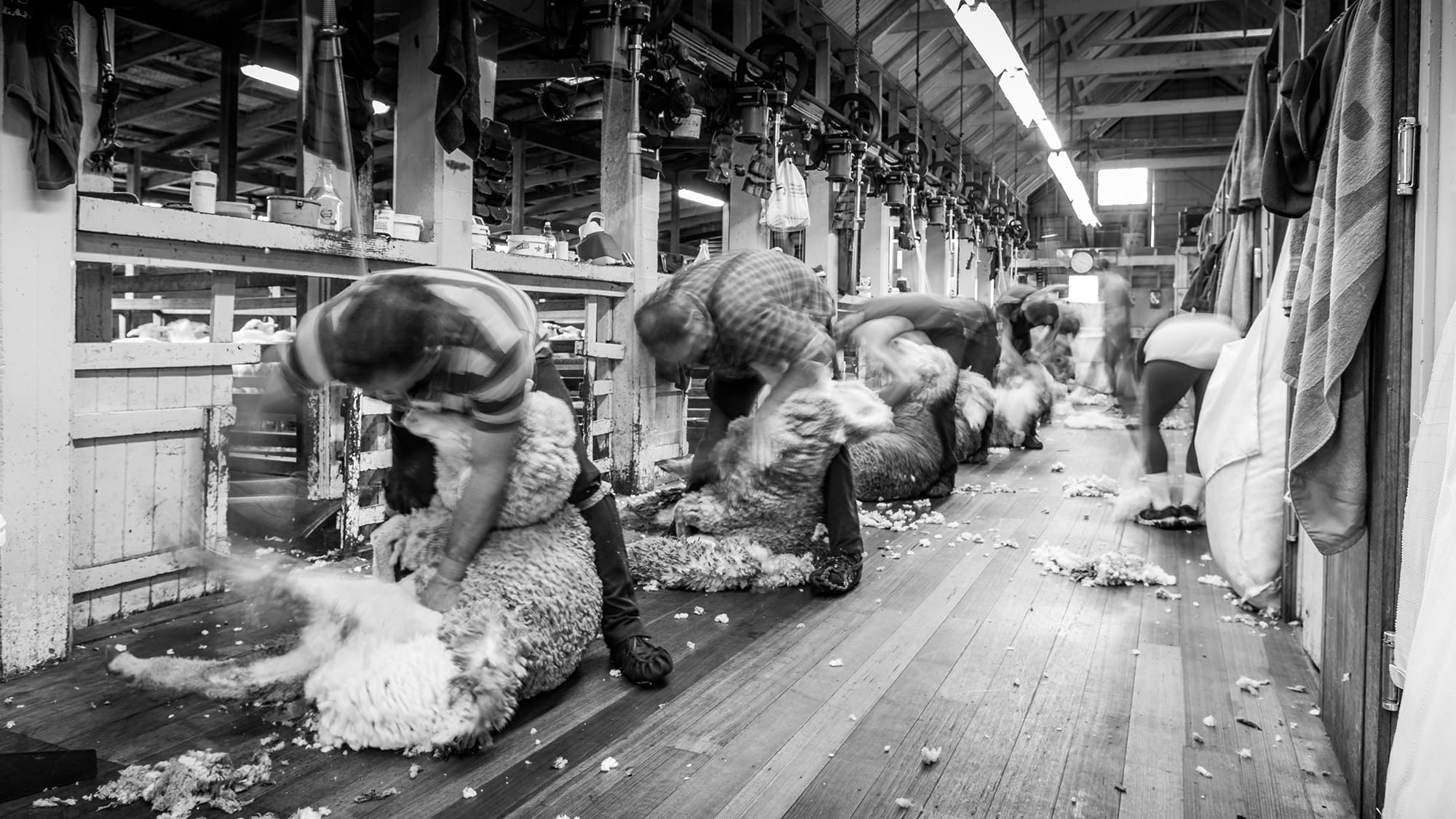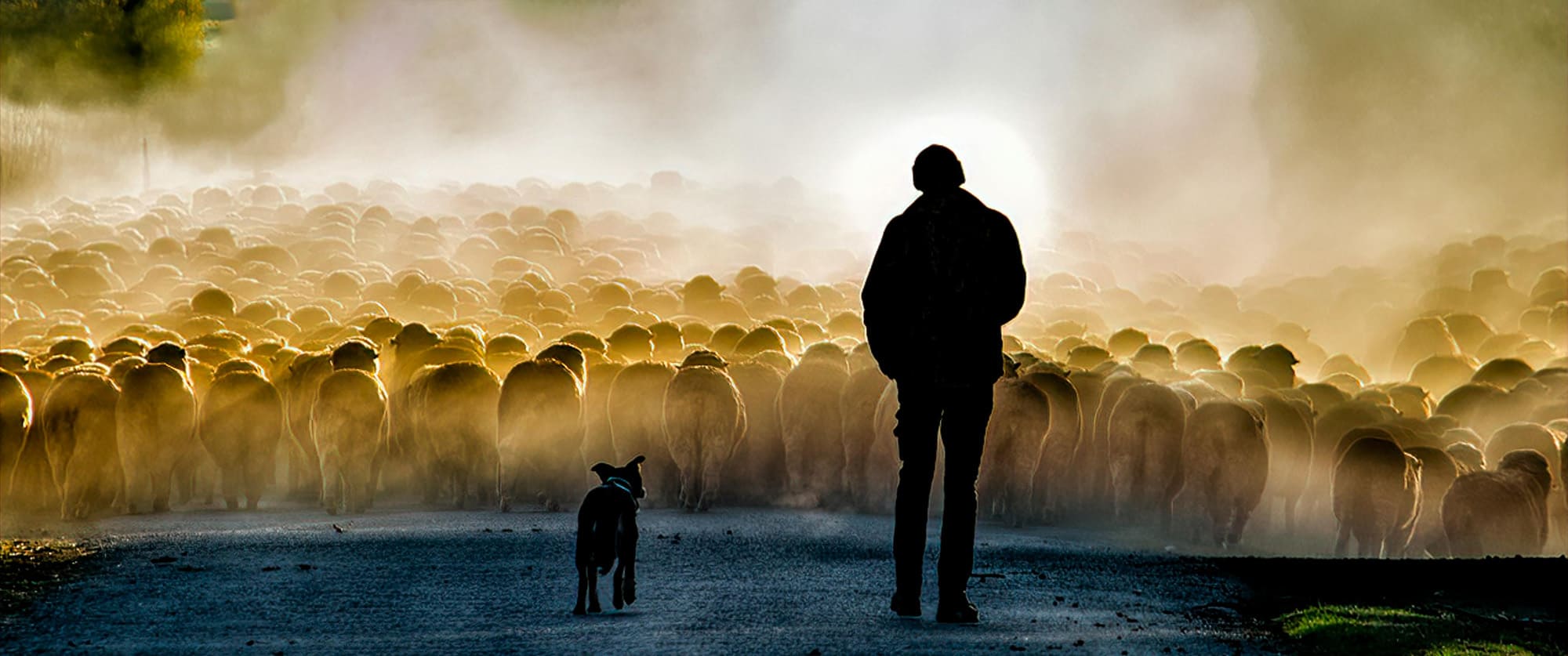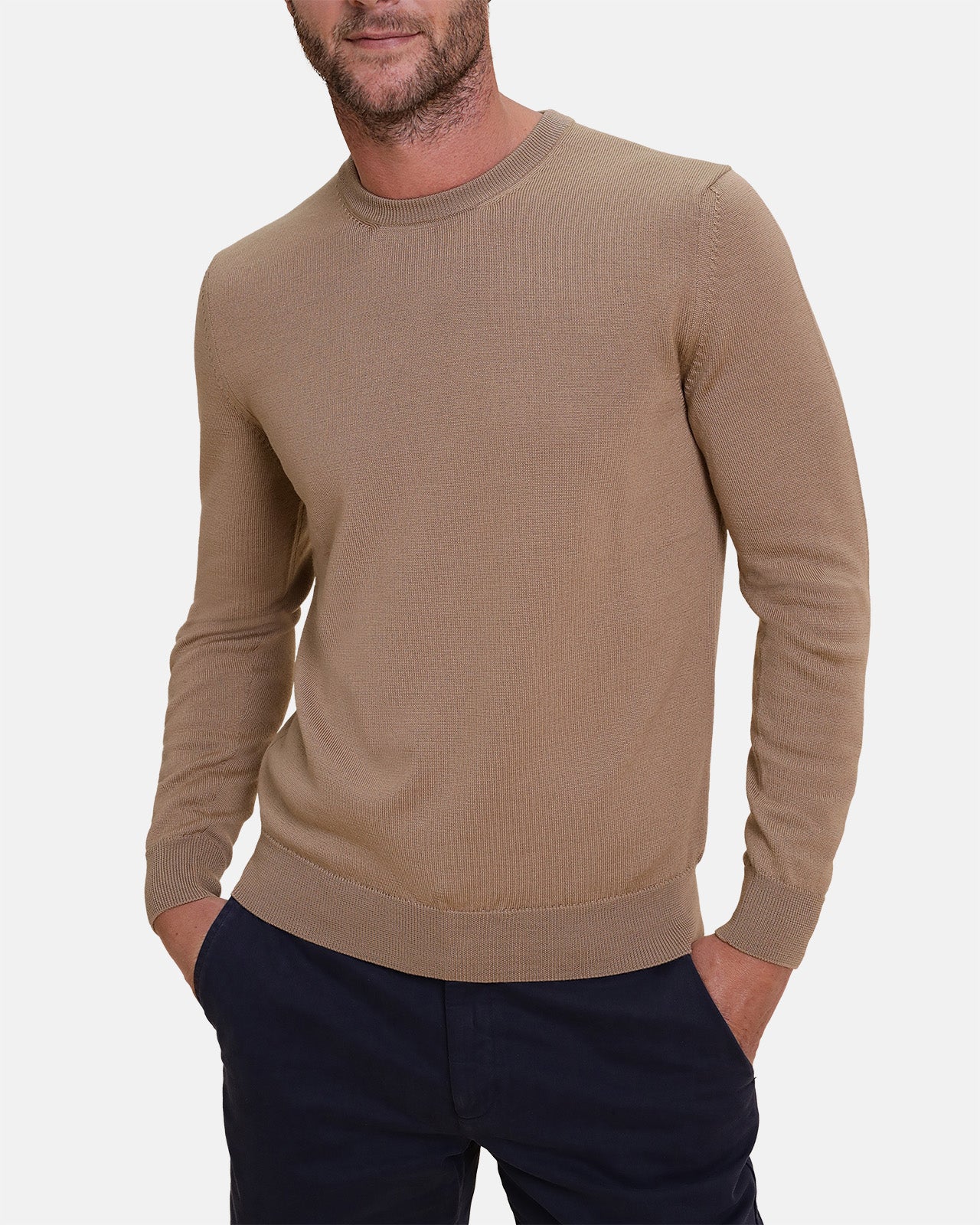Dawn breaks over the Tasmanian midlands as our 4x4 bumps along uneven terrain. The morning mist lifts to reveal an expanse that feels more like a nature reserve than a working farm. We're here to understand how Wide Open World, and Julian and Annabel's team, approach animal welfare. Unlike most brands, which highlight their commitment through certifications alone, we believe true welfare comes from an ethos, not a checklist. While their farm proudly holds Responsible Wool Standard certification, a visit always tells more than a certification mark.
"Without humility, progress cannot happen," notes our founder Olivier Maréchal as he reflects on the topic. "Understanding animal welfare requires observing practices firsthand, listening to those who dedicate their lives to these animals, and recognising the complexity of the work."
In an industry where claims of ethical sourcing often conceal complex realities, Wide Open World takes a different path. Rather than merely declaring adherence to animal welfare standards, important pieces in the puzzle but not the panacea, we invite you to journey with us to the source—the pristine landscapes of Tasmania where our exceptional Merino wool begins its story.
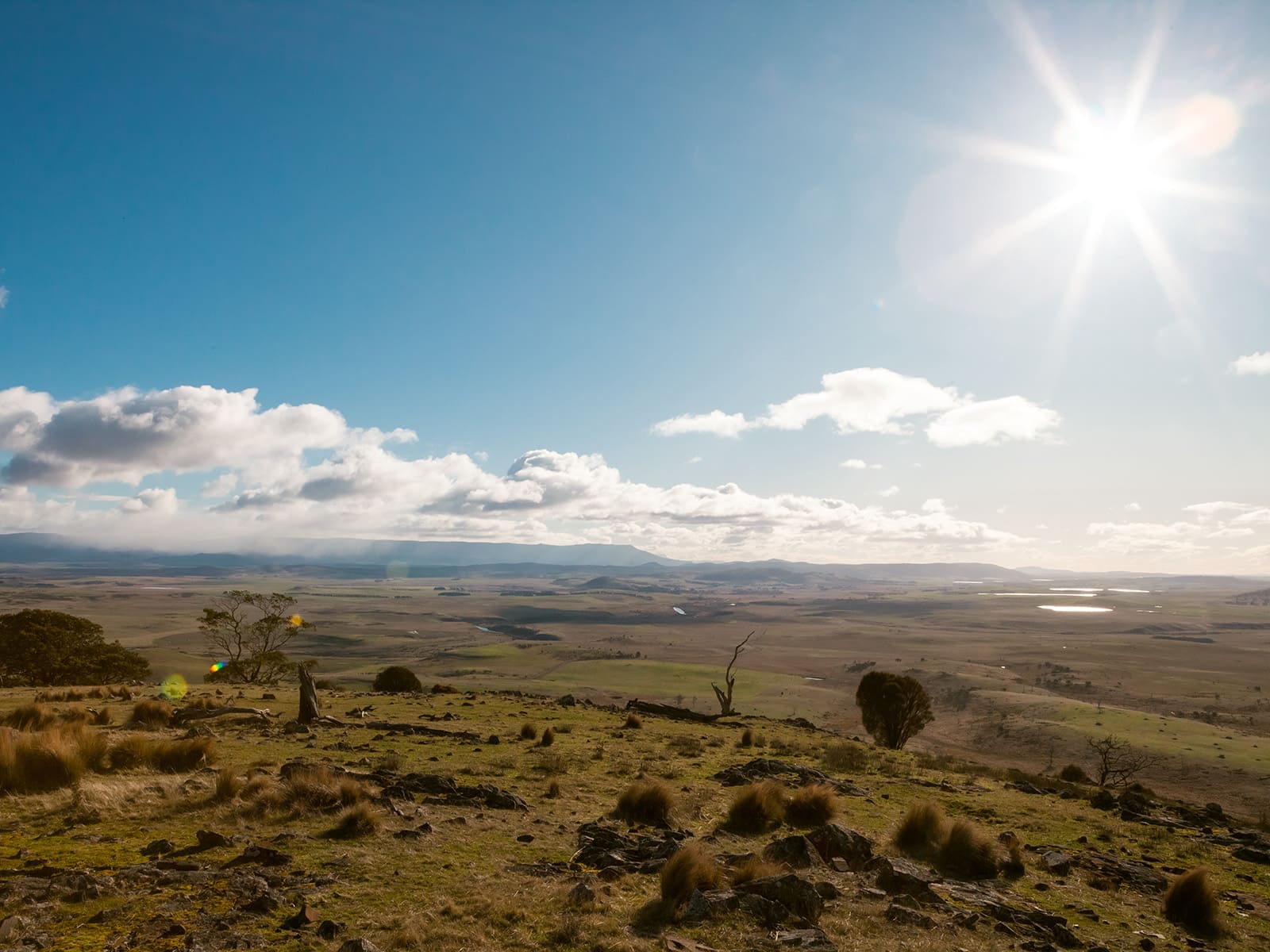 View from the farm. Photograph by Olivier Maréchal.
View from the farm. Photograph by Olivier Maréchal.
Beyond the certification checkbox
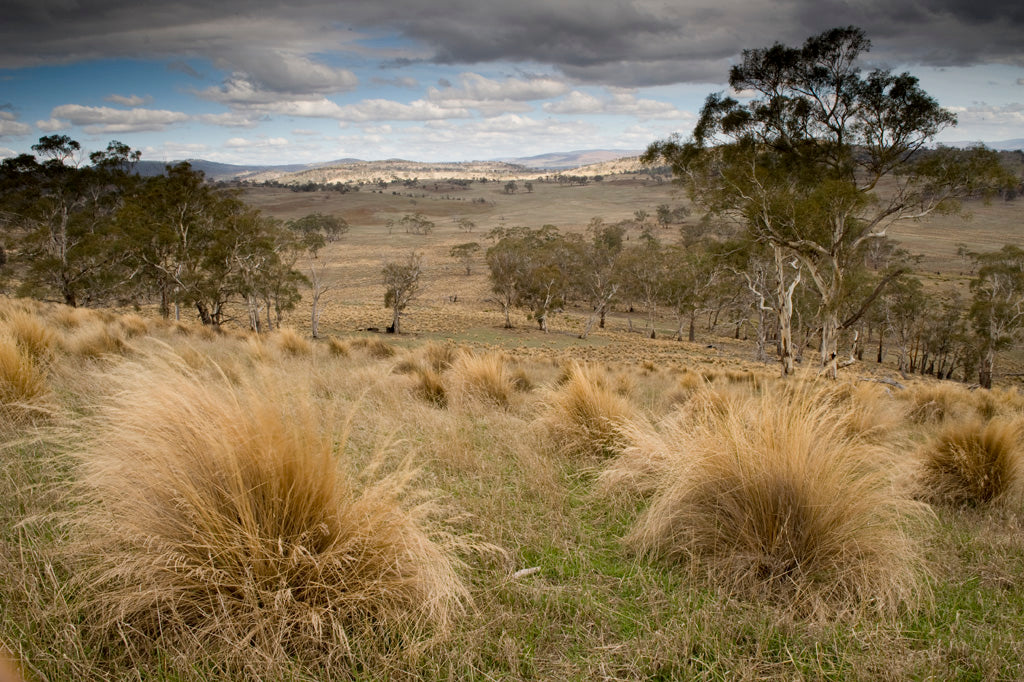 Poa tussocks on farm. Photograph by Matthew Newton.
Poa tussocks on farm. Photograph by Matthew Newton.
Life on the land
We pull over near a flock of Merino sheep grazing in the distance. Maréchal prefers on-the-ground observation to boardroom briefings. "Standards offer a framework, but real understanding comes from being here—seeing, questioning, learning," he says.
Julian and Annabel, the graziers behind this farm, lead us through native grasslands. "These aren’t just paddocks," Julian explains, kneeling to inspect the vegetation. "That’s Kangaroo grass, and those metre-high tussocks are Poa. This is an endangered lowland ecosystem we’re actively restoring."
Their farming philosophy balances wool production with conservation. By integrating nature into the process, they redefine what responsible agriculture can look like.
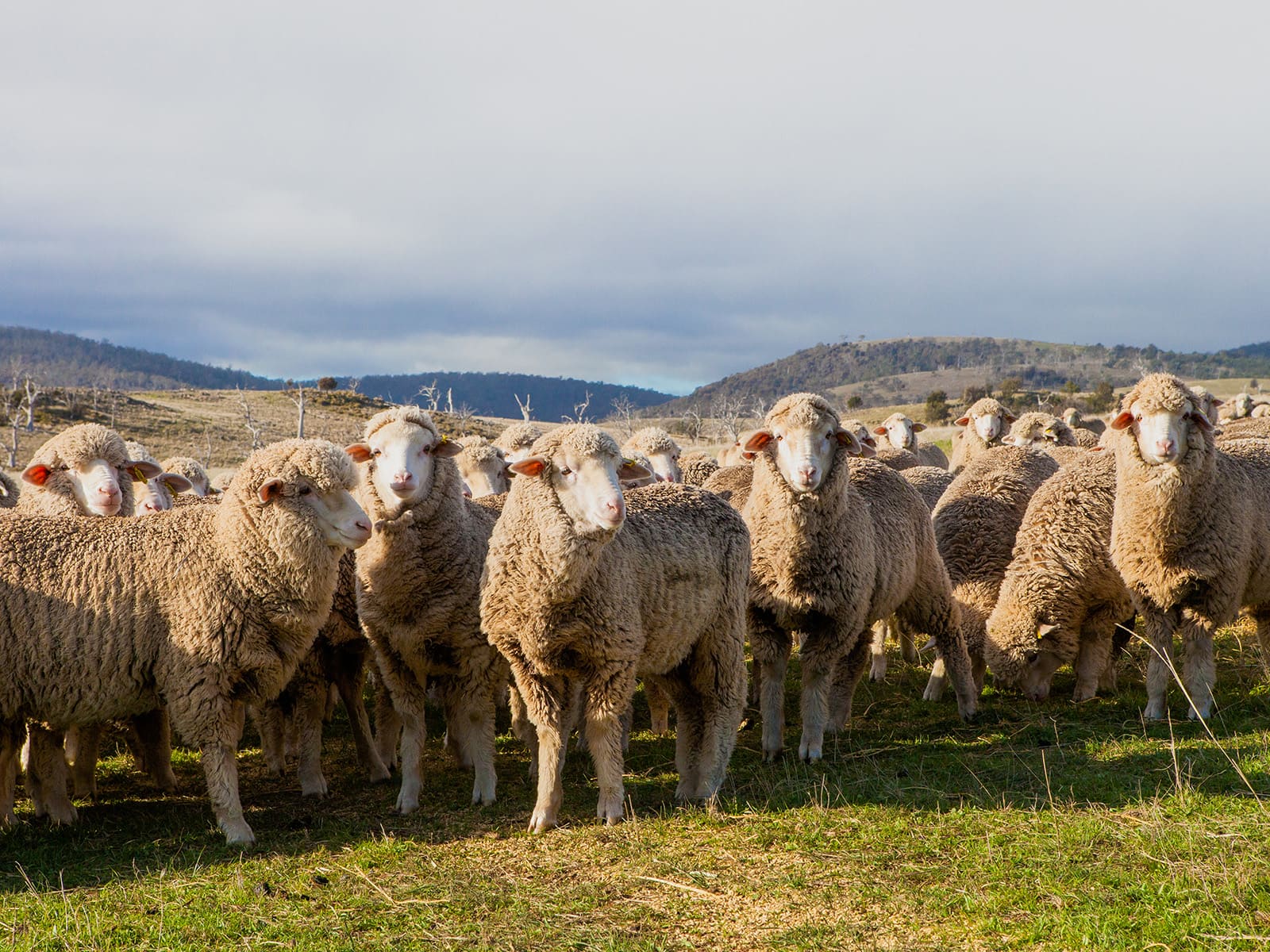 Tasmanian Merino Sheep. Photograph by Olivier Maréchal.
Tasmanian Merino Sheep. Photograph by Olivier Maréchal.
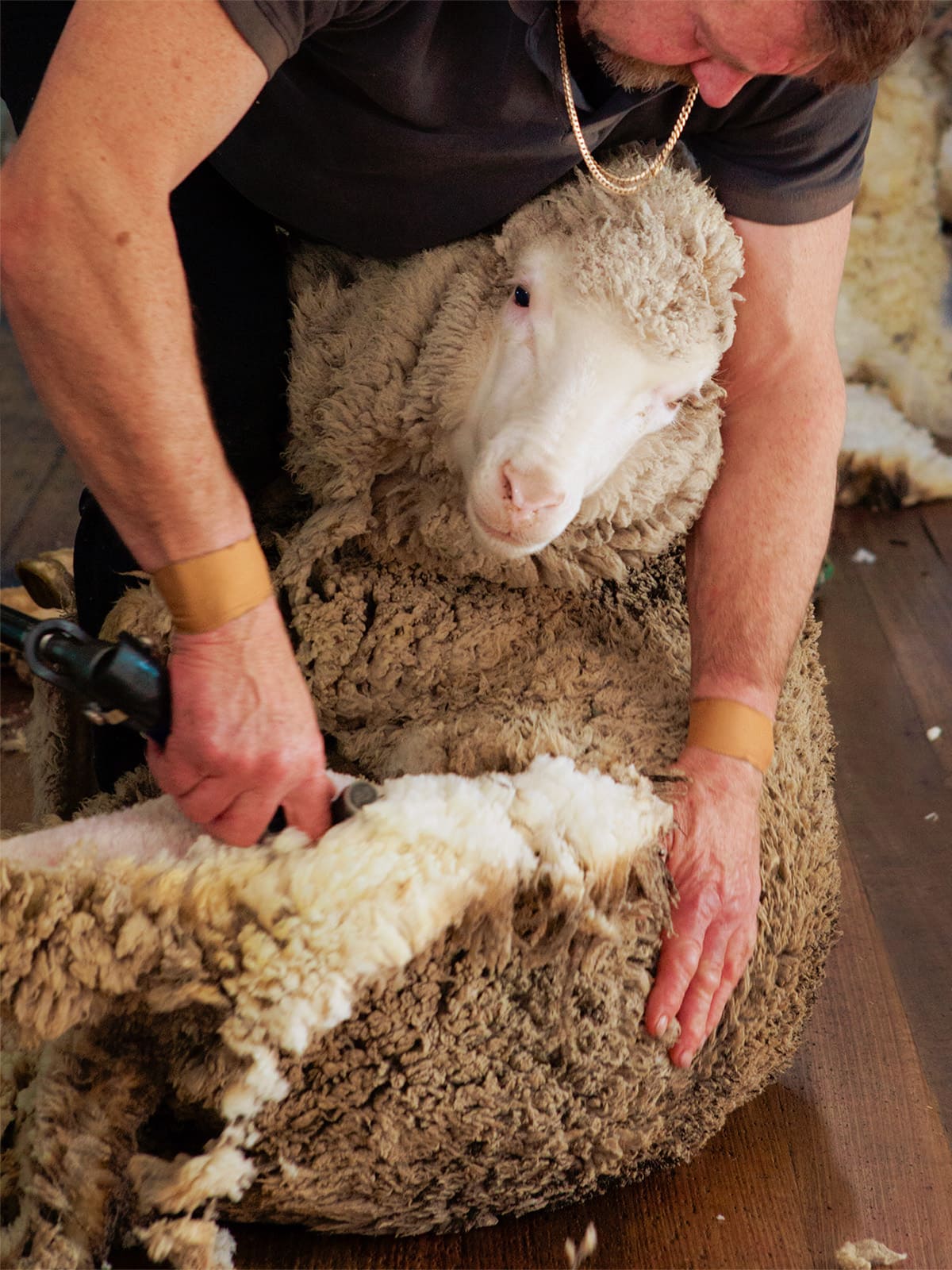 Tasmanian Merino Sheep Shearing. Photograph by Olivier Maréchal.
Tasmanian Merino Sheep Shearing. Photograph by Olivier Maréchal.
Animal welfare, in practice
Animal welfare here isn’t an abstract principle—it’s woven into daily life. The Five Freedoms of Animal Welfare provide a foundation, but their implementation is shaped by both traditional wisdom and modern stewardship.
Freedom from hunger or thirst
Sheep graze on native pastures, sustaining themselves on nutrient-rich grasses that contribute to their wool’s remarkable quality. "Nature provides, but it’s our job to maintain the balance," Julian says, describing their rotational grazing system.
Freedom from discomfort
Shelter is naturally embedded in the landscape. During harsh weather or lambing season, the sheep seek refuge among dense native grasslands, a sanctuary they’ve used for generations.
Freedom from pain, injury or disease
Mulesing is not practiced here. Instead, meticulous care and keen observation guide health management. "You can tell a lot from an animal’s posture, weight, and flock position," Julian notes. "A sheep that lags behind is telling you something."
Freedom to express normal behaviour
The extensive farming approach ensures sheep roam freely, exhibiting natural behaviours without unnecessary interference.
Freedom from fear and distress
The annual shearing is conducted with precision and care, designed to minimise stress. "The goal is no injuries," Maréchal observes, "but perfection doesn’t exist. What matters is intent, skill, and constant improvement."
 Tasmanian Merino Sheep Shearing. Photograph by Olivier Maréchal.
Tasmanian Merino Sheep Shearing. Photograph by Olivier Maréchal.
The shearing dialogue
Before dawn, the shearing shed hums with rock music as shearers prepare for the day’s work. Shearing is an intensely physical task—sheep weigh up to 80 kilograms each and each worker handles hundreds of them daily, balancing speed with care.
Peter, the lead shearer and wool classer, acknowledges the realities. "We aim for no cuts, but this is manual work. Even shaving your own face can leave a nick. The goal is skill, not haste."
Maréchal watches closely. The sheep, handled with practised skill, remain surprisingly calm during shearing. Is it flawless? "This is where ethics meet reality," he reflects. "It’s easy to demand perfection from a distance. The real challenge is continuous, incremental progress."
Yet there’s an undeniable satisfaction in watching the shearers at work. The fleeces, rich with lanolin, carry a faint, earthy sweetness—nature’s own moisturiser, leaving hands impossibly soft.
“Wool is largely traded as a commodity”
The economic reality
Over lunch in the farmhouse kitchen, conversation shifts to economics. "Wool is largely traded as a commodity," Julian explains. Prices fluctuate wildly, but production costs only rise.
This volatility ripples through the entire supply chain. Shearers, typically paid per sheep, feel the pressure to work faster, a pace that can strain both ethics and quality. "Speed versus care—it’s a constant balance," Peter admits. "Rush, and mistakes follow. And those mistakes? They affect both the animal, the shearer, and the final product."
A day with the shearing team
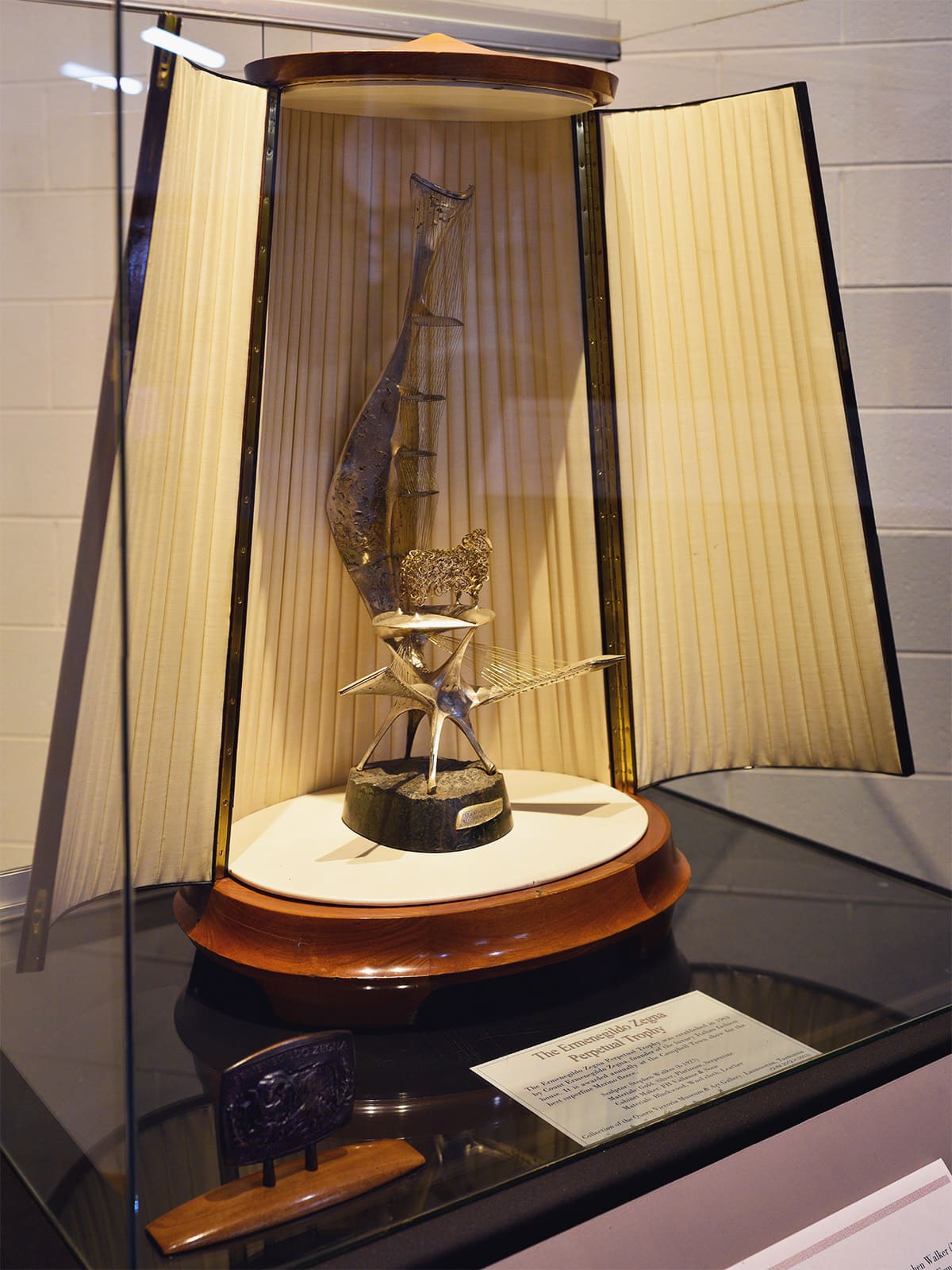 Ermenegildo Zegna Perpetual Trophy, Tasmanian Wool Centre, Ross.
Ermenegildo Zegna Perpetual Trophy, Tasmanian Wool Centre, Ross.
The quality connection
The link between animal welfare and wool quality is undeniable. Stress leaves a mark—literally—on the fibres. Wool classer Peter demonstrates this as he inspects a fleece. "Look at the crimp, the brightness, the strength," he says. "You don’t get this from stressed animals."
This commitment to quality, rooted in respect for both the animal and the land, has earned Tasmanian wool recognition in competitions like the Ermenegildo Zegna Perpetual Trophy since 1963.
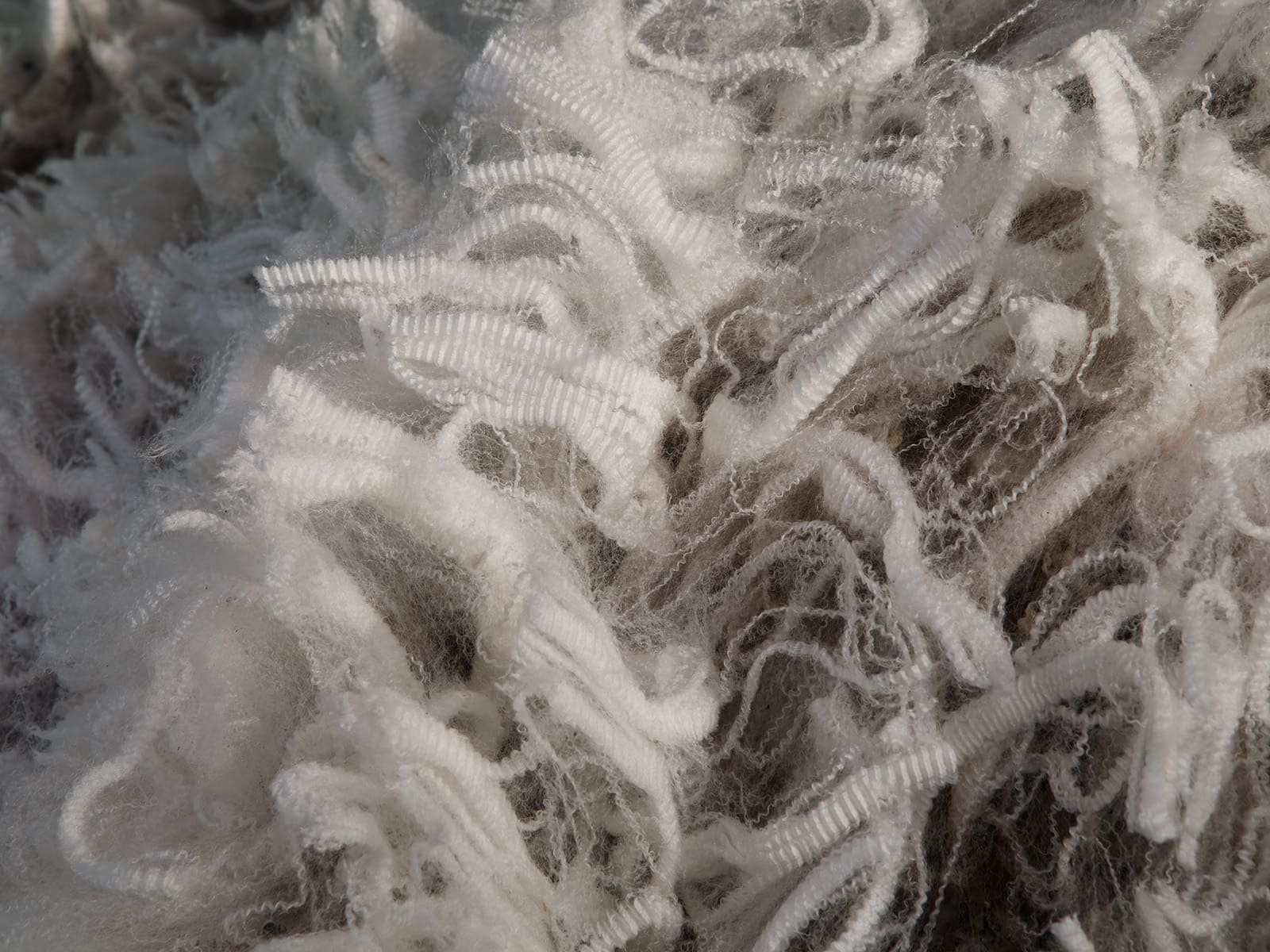 Tasmanian superfine merino wool. Close up photograph by Olivier Maréchal.
Tasmanian superfine merino wool. Close up photograph by Olivier Maréchal.
Breaking the commodity cycle
Wide Open World challenges the industry’s race to the bottom. By paying farmers what their work truly deserves—beyond market volatility—we enable ethical progress.
"When wool is reduced to a number on a chart, ethics disappear," Maréchal states. "We don’t squeeze prices—we invest. Animal welfare and economic stability go hand in hand."
“When wool is reduced to a number on a chart, ethics disappear.”
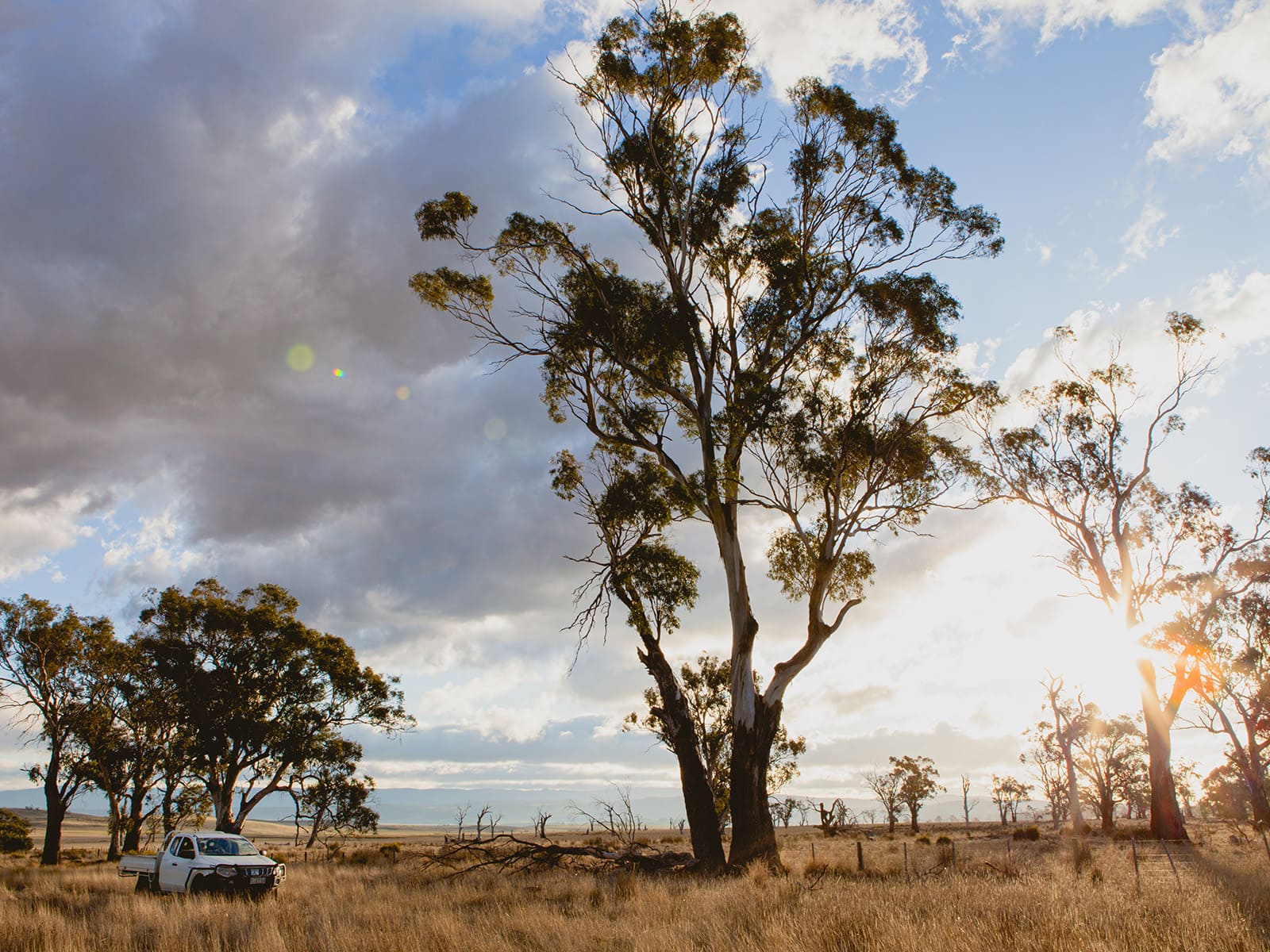 Photograph taken on farm by Olivier Maréchal.
Photograph taken on farm by Olivier Maréchal.
A continuous journey
As the sun dips behind the hills, Maréchal jots notes in his journal. "Animal welfare isn’t a milestone—it’s an ongoing pursuit," he reflects. "It’s about generations of breeding, years of restoring landscapes, and seasons of learning."
At Wide Open World, sustainability isn’t a buzzword; it’s the foundation of our craft. Ethical wool production isn’t about claiming perfection—it’s about striving, questioning, and improving, year after year. When you wear our knitwear, you wear more than just Tasmanian Superfine Merino—you wear a story of respect, integrity, and enduring commitment.
